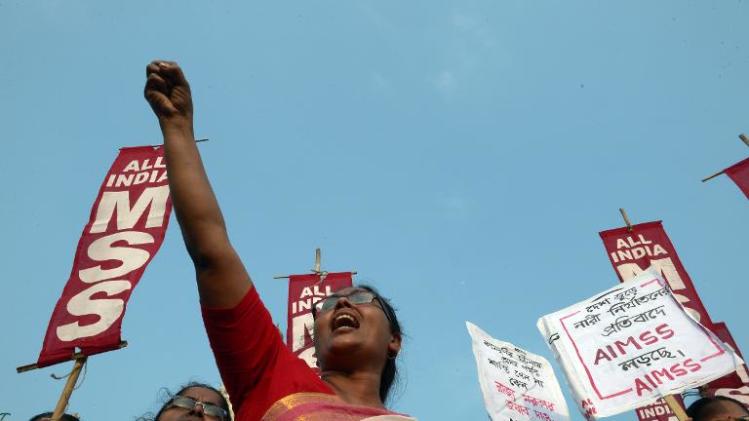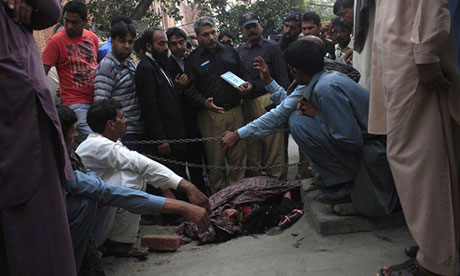Another minister endorses rapes
Indian minister says rapes happen 'accidentally'
New Delhi (AFP) - A minister from Indian Prime Minister Narendra Modi's ruling party has said rapes happen "accidentally" in the latest controversial remarks by a politician amid renewed anger over attacks against women.
Ramsevak Paikra, the home minister of central Chhattisgarh state who is responsible for law and order, said late on Saturday that rapes did not happen on purpose.
"Such incidents (rapes) do not happen deliberately. These kind of incidents happen accidentally," Paikra, of the Bharatiya Janata Party (BJP) which also rules at the national level, told reporters.
Paikra, who was asked for his thoughts on the gang-rape and lynching of two girls in a neighbouring state, later said he had been misquoted. His original remarks were broadcast on television networks.
The remarks come days after the home minister of the BJP-ruled Madhya Pradesh state said rapes were "sometimes right, sometimes wrong".
The minister, Babulal Gaur, gave the remarks on Thursday at a time of growing outrage over the gang-rape and murder of the girls, aged 12 and 14, in northern Uttar Pradesh state late last month.
Modi, whose party came to power in a landslide election victory, has so far stayed silent over the rapes and has not addressed the politicians' comments.
Uttar Pradesh Chief Minister Akhilesh Yadav faced severe criticism for his perceived insensitivity over the attacks on the low-caste girls, who were found hanging from a mango tree after being sexually assaulted multiple times.
Yadav's father Mulayam Singh -- leader of the Samajwadi Party -- was also the target of public anger in April when he told an election rally that he opposed the recently introduced death penalty for gang-rapists, saying "boys make mistakes".
Women's groups have slammed the comments, saying they were evidence that politicians were unable to stem sexual violence because they lacked respect for India's women and were ignorant of the issues.
Politicians also came under fire after the fatal gang-rape of a student on a moving bus in New Delhi in December 2012, a crime that angered the nation and shone a global spotlight on India's treatment of women.
India brought in tougher rape laws last year after the Delhi attack, but they have failed to stem the tide of violence against women across the country.
At the time, several politicians sought to blame tight jeans, short skirts and other Western influences for the country's rise in rapes, while the head of a village council pointed to chowmein which he claimed led to hormone imbalances among men.




